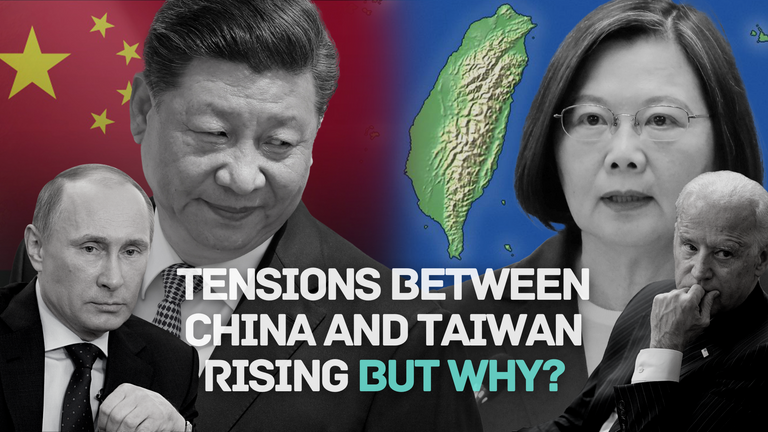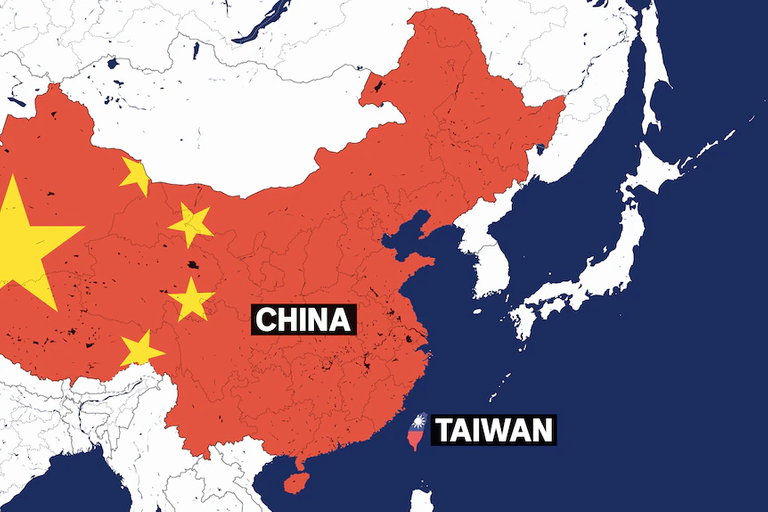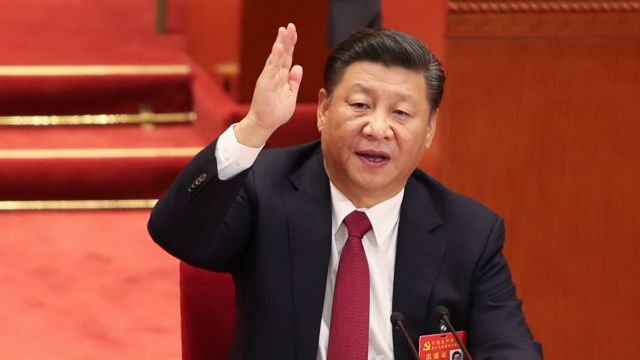
Beijing taking steps to increase its military pressure on Taiwan, carrying out now regular amphibious assault exercises and military and spy flights over the nation. There are so many different factors right now that could potentially lead to a Chinese invasion of Taiwan. I think older generations, may remember a Taiwan that produced cheap toys. That, however, has shifted. Certainly, on the semiconductor front, they've over the years developed a greater dependency on Taiwan. they don't have much choice in the matter. The world sort of allowed Taiwan to become the top manufacturer of advanced chips. Silicon Valley was created, they created the semiconductor industry here in America, and over the past few decades, we've just allowed ourselves to fall behind. If something happens in Taiwan, we are in trouble.
The one-China policy is different from the one-China principle, which is a concept that mainland China has. So Beijing says that there is one China that is under the communist government of the PRC. At the end of the civil war in 1949, the Communists won and formed the People's Republic of China. And then the Nationalists fled the mainland and went to the island of Taiwan, where they formed their government. Pre-dating 1979, we recognized Taiwan as the sole and legitimate government of China. Then, under the Carter administration, that recognition was switched. The US hasnot madee any definitive statements about Taiwan and its status.

We have the so-called strategic ambiguity in our commitment to Taiwan, which dates back 40 years because we were just as afraid that Taiwan would use the American security umbrella to be more assertive and declare independence as we were worried about China attacking. So we tried to prevent either of those possibilities by making it unclear whether we would come to Taiwan's defence. Things have changed now primarily for two reasons. The threat from China is simply becoming has simply become too significant to ignore. Its military has grown enormously since the 1990s. With Taiwan, with its democracy, we don't have that same concern or certainly, it's significantly reduced that Taiwan would unilaterally declare independence.
Taiwan has managed to position itself over the last 30 years as a contract manufacturer or original design manufacturer of choice for many of the world's leading technology companies, most of which come from the states, quite frankly. Companies like Apple, Hewlett-Packard, Microsoft, Google, Amazon and others. The key major company that people talk about in Taiwan is a company called TSMC, which is a chip foundry, and they make chips and parts for so many different American companies as well as other companies around the world. We don't make any of the world's most sophisticated, smallest, leading-edge chips in the United States of America. Somehow we've allowed ourselves to get into a position where we are utterly dependent on Taiwan for those chips. And those are the very chips that you need in artificial intelligence, high-end computing, communications, and military equipment. We're still seeing capital being ploughed into Taiwan at really significant levels. Yes, there are tensions in the Taiwan Strait, but the global business community see Taiwan right now as an important place to deploy capital. And that's taking place.

One of Xi Jinping's major goals is what is called national rejuvenation, which he wants to achieve by 2049. And part of that national rejuvenation is bringing back to the homeland all territories that have not been subject to Beijing's controls. Xi is bet his entire life on being able to bring back Taiwan into China's fold. And so I think that what they did to Hong Kong is a horrible omen for what's about to happen in Taiwan. Officially, Beijing has not changed its position in Taiwan. They constantly say that they want to have unification with Taiwan. However, we have seen President Xi Jinping and his administration over the past couple of years increase the military intimidation of Taiwan with, for example, flyovers. A lot of it coincides with China feeling its oats in military terms because it's now about 15 years that China's been, I think, pretty clearly the world's number two military power. If you're worried that China may decide strategic ambiguity means that the Americans really would sit this one out because we didn't come to Ukraine's defence either. You don't want China to think that way. You want them to believe there's a high probability of a US response, a US military response.
When the US made the shift to recognize Beijing as China, it didn't necessarily want to be seen as walking away from its relationship with Taiwan. The US continues to supply arms to Taiwan and continues to see Taiwan as an important economic partner. And because of that, Beijing has been very concerned in the past couple of years that the relationship between Taiwan and the US appears to be getting closer and closer. So what we did have was we had the Indo-Pacific economic framework the President launched several weeks ago in Japan, and several economies have signed up from that. It's an interesting framework. We'll have to see what the meat looks like on the bones. That's always where, you know, that's where the rubber meets the road. A fear that we potentially could get into a situation where China decides that it's best for Beijing to take Taiwan by force. And one wild card in all of this is that the power in Beijing is becoming much more centralised. I think we should be able—we collectively China, Taiwan, the United States, Japan, and other players—we should be able to avoid war because we've been all talking about it long enough, preparing long enough that everybody has to go into this thing clear-eyed about what could happen if there were a fight.